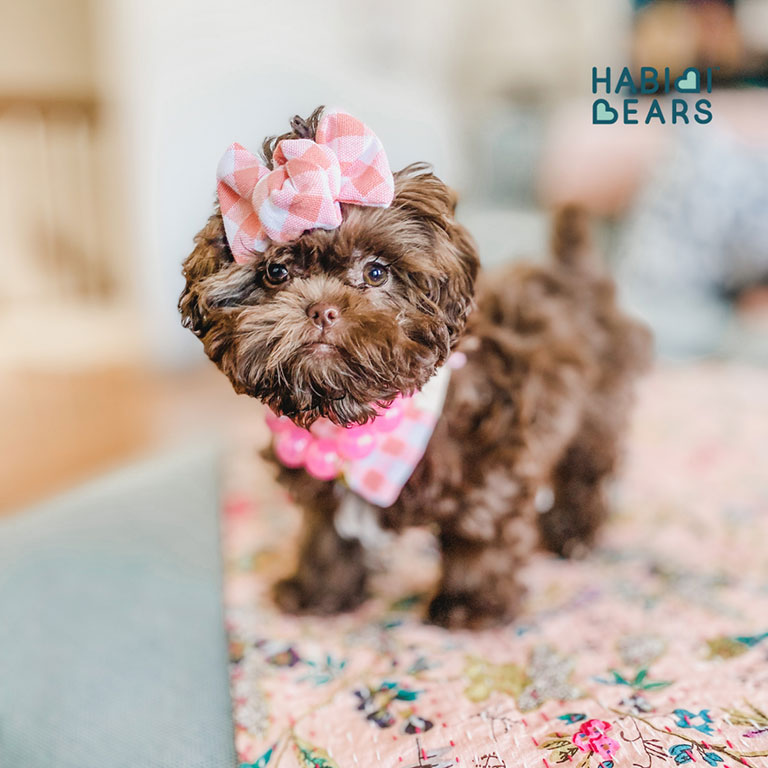The teacup Maltipoo represents the ultimate in portable companionship. Weighing just 4-8 pounds and standing under 8 inches tall, these miniature marvels are smaller than most house cats yet filled with personality, affection, and charm.
Whether you’re drawn to their suitability for apartments, their travel-friendly size, or their irresistible cuteness, this guide will walk you through everything you need to know about responsibly choosing and caring for a teacup Maltipoo.
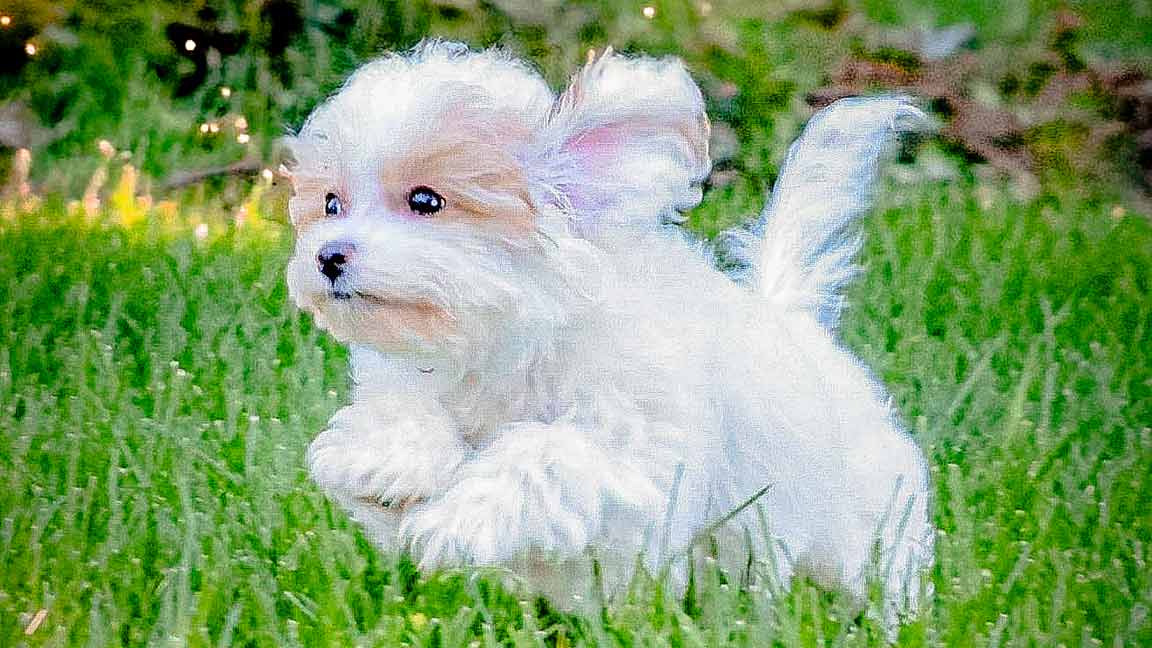
Understanding the Teacup Maltipoo
What Is a Teacup Maltipoo?
Teacup maltipoos are the tiniest version of the popular Maltese and toy Poodle crossbreed. Selectively bred from the smallest parents, they maintain all the intelligence and affectionate temperament of a full-sized maltipoo.
They typically weigh between 4 and 7 pounds (up to 8 in some cases) and stand about 6 to 8 inches tall. Their soft, hypoallergenic coats can come in a variety of colors, including white, cream, apricot, brown, and even parti mixes.
Despite their tiny size, their personalities are huge. They form deep emotional bonds and are often highly attuned to their owners’ moods.
Temperament: Mighty Hearts in Tiny Bodies
Teacup maltipoos are gentle, intelligent, and emotionally intuitive. They’re confident, affectionate, and surprisingly brave, making them ideal emotional support animals or therapy dogs. Many are happy with bursts of play followed by hours curled up on a lap.
Their small size also makes them perfect for people with limited mobility, smaller homes, or busy schedules.
Why Teacup Size Appeals
One of the biggest reasons people choose teacup maltipoos is their incredible adaptability. They can accompany their owners just about anywhere, travel easily in airline-approved carriers, and fit comfortably into apartment living.
Their quiet nature and minimal shedding mean less noise and cleanup, while their deep emotional connection with their humans creates truly special relationships.
“From the moment I brought her home, she fit right in—like she’d always been part of the family. Ten years later, she still hasn’t left my side.”
-Cassandra
Health Considerations
Common Health Concerns
Teacup maltipoos, while adorable, are more vulnerable to certain health conditions due to their extremely small size. These include hypoglycemia (especially in puppies or under stress), fragile bones that can break from minor falls or jumps, luxating patella, collapsed trachea, and dental crowding.
While these health issues can sound intimidating, choosing a responsible and ethical breeder, like Habibi Bears, greatly reduces the chances of these problems. Through comprehensive health testing, careful size planning, and a focus on sound genetics, our breeding practices prioritize long-term health and quality of life. A well-bred teacup maltipoo from a reputable source starts life with the best possible foundation.
Temperature Sensitivity
They struggle with regulating body temperature. In winter, they often need sweaters or heated bedding. In summer, they can overheat quickly and may need cooling vests or shaded areas to stay comfortable.
Digestive Needs
Teacup maltipoos have small, sensitive stomachs. They do best with small, frequent meals and high-quality diets formulated for toy breeds. Many respond well to limited-ingredient or prescription foods.
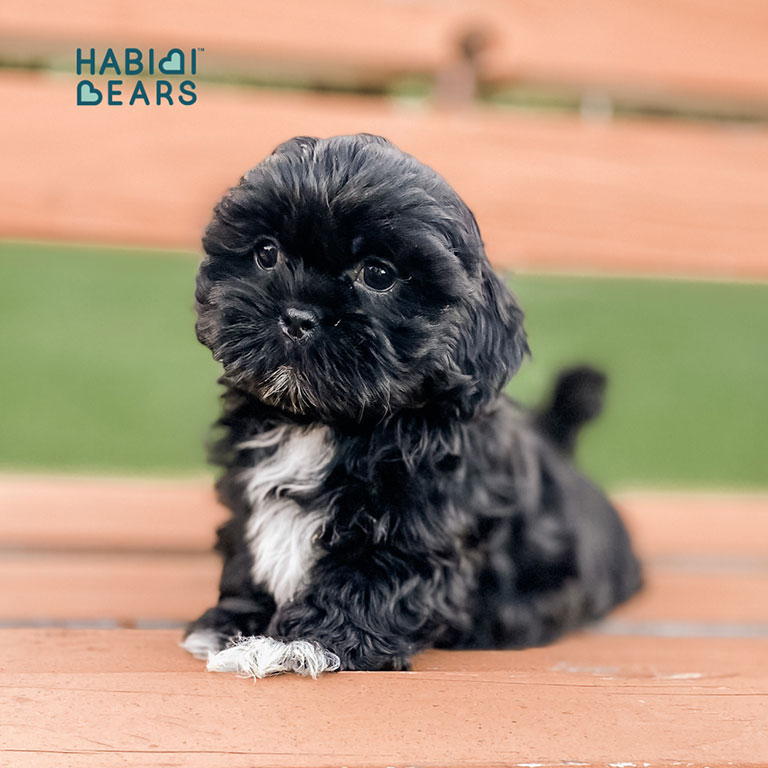
Specialized Vet Care
Veterinarians need to adjust dosages and procedures to fit their small size. Frequent checkups and emergency planning are essential, as minor issues can escalate rapidly.

The Habibi Bear Difference

Luna May: A Real Story of Emotional Support
Luna May helped her owner Jenice through life changes with intuition and attitude. Despite being just a few pounds, she brought laughter, love, and emotional healing. This bond showcases Habibi Bear’s focus on breeding emotionally intelligent companions.
Why Habibi Bear Teacup Maltipoos Stand Out
At Habibi Bear, we don’t just breed for size, we prioritize health, temperament, and emotional connection. Their teacup maltipoos are the result of decades of careful genetic planning and health testing.
We offer size options within the teacup range, from micro teacups (3–5 lbs) to standard teacups (5–7 lbs), all raised with the same intentional care.
Habibi Bear dogs are naturally small, not the result of forced or unhealthy breeding practices. Puppies are socialized early to ensure confidence and adaptability.

Caring for a Teacup Maltipoo
Feeding and Nutrition
Due to their fast metabolism, teacup maltipoos should eat three to four small meals per day. Free-feeding may help with hypoglycemia but should be monitored closely. Tiny kibble formulated for toy breeds is ideal.
Home Safety
Small jumps can be dangerous. Ramps or stairs help them reach beds or couches safely. Rugs or runners can provide traction, and baby gates can keep them out of high-risk areas.
Temperature Control
These dogs are highly sensitive to heat and cold. Warm bedding and clothing help during colder months, while shaded areas and cooling gear are necessary during the summer.
Grooming
Their coats require regular maintenance. Daily brushing helps avoid matting, and professional grooming every 4 to 6 weeks is recommended. Groomers experienced with teacup breeds ensure safety during grooming.
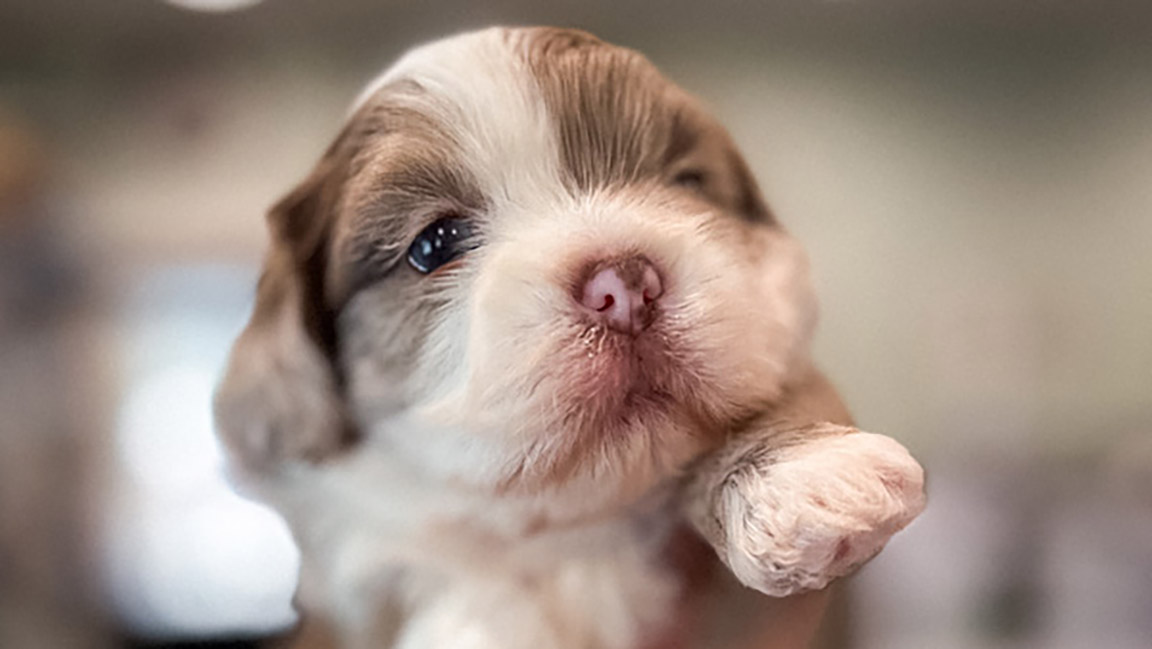
Training and Socialization
Our Puppy Charm School is a fantastic way to jumpstart all the foundational behaviors teacup maltipoos need. From compassionate confinement and potty training to socialization and bonding, our program lays the groundwork for lifelong learning and confidence. Families who enroll their puppies in Charm School often find the transition home smoother and less stressful, for both humans and pups.
House Training
With small bladders and fast metabolisms, teacup maltipoos need frequent potty breaks. Indoor potty systems often work better than relying solely on outdoor walks.
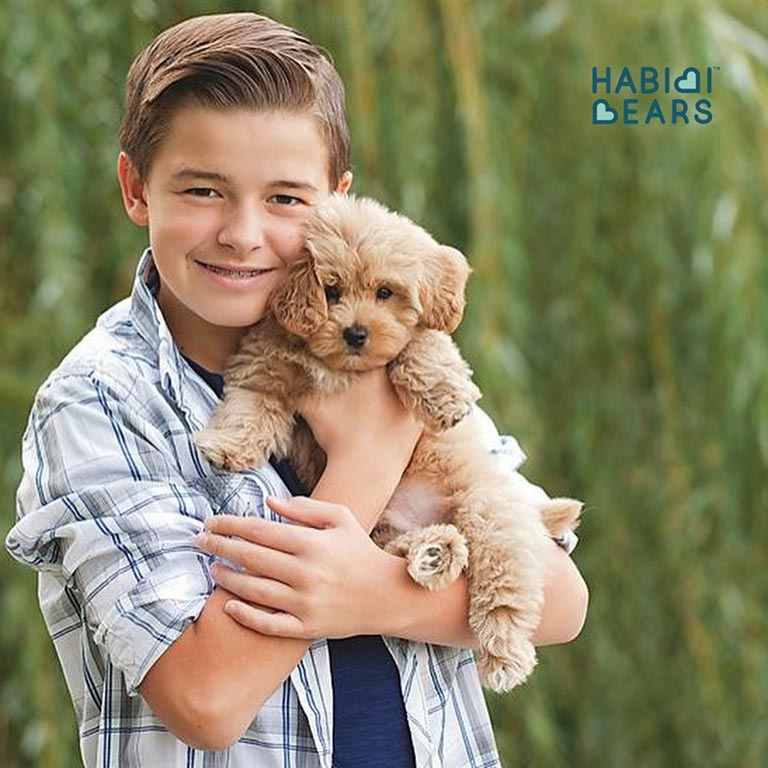
Gentle Training Methods
These dogs respond best to short, positive training sessions. Treats must be small, and consistency is key. Long sessions can tire them out, so keep it light and rewarding.
Socialization
They benefit from exposure to new people and environment, but must be introduced gradually and carefully. Puppy classes for small breeds are a great way to build confidence.
Snuggle Up to Your New Adventure
Connect with Us Today!
Lifelong Learning & Enrichment
Teacup maltipoos love to learn and stay mentally active. Puzzle toys, short training refreshers, and new tricks keep them sharp and prevent boredom. Therapy dog certification is also possible for well-socialized teacup maltipoos.
Common behavioral challenges include separation anxiety and fearfulness, which can be managed with patience and gentle training.
Choosing the Right Companion
Owning a teacup maltipoo is a big responsibility in a tiny package. They require care, attention, and a deep commitment to their well-being.
Habibi Bear sets the standard for healthy, emotionally connected teacup companions. Their intentional approach to breeding ensures you’re getting not just a pet, but a devoted family member.
Frequently Asked Questions About Teacup Maltipoos
How small do they get?
Around 2 to 5 pounds, 6 to 8 inches tall.
Are they fragile?
Yes, they need gentle handling and protection.
What health concerns are common?
Hypoglycemia, bone fragility, dental issues, collapsed trachea.
Do they need special feeding?
Yes, 3–4 meals a day with small-breed kibble.
Are they apartment-friendly?
Absolutely.
Can kids have them?
Only older, gentle children with supervision.
Do they need a lot of exercise?
Just short play sessions and walks.
What makes a breeder trustworthy?
Health testing, ethical practices, and transparency.
How long do they live?
10–14 years with proper care.
Can they fly?
Yes, they travel well in cabin-approved carriers.
Are they hypoallergenic?
Allergy friendly, but not completely allergen free.
.
Join the Habibi Tribe
Through our thoughtful evaluation process, we create matches that change lives. Whether you’re seeking a loyal family companion or a life-saving service dog, the Habibi Method ensures every puppy finds their perfect home.
Ready to Find Your Perfect Match?

